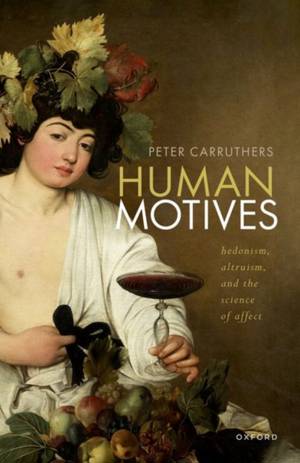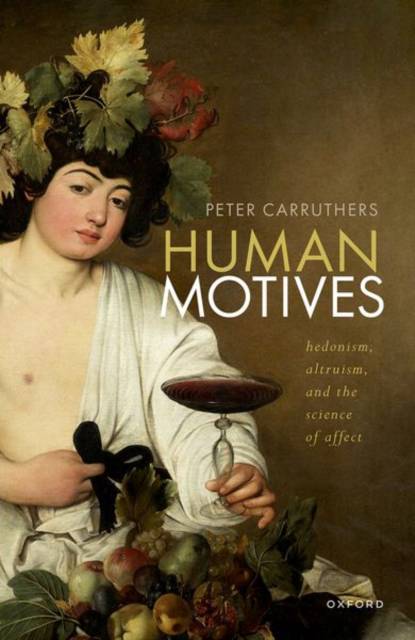
- Afhalen na 1 uur in een winkel met voorraad
- Gratis thuislevering in België vanaf € 30
- Ruim aanbod met 7 miljoen producten
- Afhalen na 1 uur in een winkel met voorraad
- Gratis thuislevering in België vanaf € 30
- Ruim aanbod met 7 miljoen producten
Zoeken
€ 66,45
+ 132 punten
Omschrijving
Motivational hedonism (often called "psychological hedonism") claims that everything we do is done in pursuit of pleasure (in the widest sense) and to avoid pain and displeasure (again, in the widest sense). Although perennially attractive, many philosophers and experimental psychologists have claimed to refute it. Human Motives shows how decision-science and the recent science of affect can be used to construct a form of motivational hedonism that evades all previous critiques. On this view, we take decisions by anticipating and responding affectively to the alternatives, with the pleasure / displeasure component of affect constituting the common currency of decision-making. But we do not have to believe that the alternatives will bring us pleasure or displeasure in the future. Rather, those feelings get bound into and become parts of the future-directed representation of the options, rendering the latter attractive or repulsive. Much then depends on what pleasure and displeasure really are. If they are intrinsically good or bad properties of experience, for example, then motivational hedonism results. Carruthers argues, in contrast, that the best account is a representational one: pleasure represents its object (nonconceptually, in a perception-like manner) as good, and displeasure represents it (nonconceptually) as bad. The result is pluralism about human motivation, making room for both genuine altruism and intrinsic motives of duty.
Clearly written and deeply scientifically informed, Human Motives has implications for many areas of philosophy and cognitive science, and will be of interest to anyone wanting to understand the foundations of human motivation.
Clearly written and deeply scientifically informed, Human Motives has implications for many areas of philosophy and cognitive science, and will be of interest to anyone wanting to understand the foundations of human motivation.
Specificaties
Betrokkenen
- Auteur(s):
- Uitgeverij:
Inhoud
- Aantal bladzijden:
- 234
- Taal:
- Engels
Eigenschappen
- Productcode (EAN):
- 9780198906131
- Verschijningsdatum:
- 26/04/2024
- Uitvoering:
- Hardcover
- Formaat:
- Genaaid
- Afmetingen:
- 147 mm x 229 mm
- Gewicht:
- 498 g

Alleen bij Standaard Boekhandel
+ 132 punten op je klantenkaart van Standaard Boekhandel
Beoordelingen
We publiceren alleen reviews die voldoen aan de voorwaarden voor reviews. Bekijk onze voorwaarden voor reviews.








